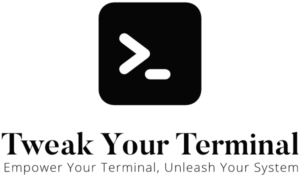Homebrew, a popular package manager for macOS and Linux, enables users to install, upgrade, and manage software packages with ease. Just like the software packages it manages, Homebrew itself needs to be regularly updated to ensure optimal performance and security. This article will guide you through the process of updating Homebrew.
Why Update Homebrew?
Updating Homebrew is essential for several reasons:
- Access to the latest features: Homebrew’s developers are constantly working on adding new features and improvements. Updating Homebrew ensures that you have access to the latest functionalities.
- Software compatibility: Updated Homebrew guarantees compatibility with the software packages it manages, especially newer ones that may not work with older versions of Homebrew.
- Security: Like any software, Homebrew can have security vulnerabilities. Regular updates help patch these vulnerabilities, keeping your system secure.
How to Update Homebrew
Updating Homebrew is a straightforward process. Open the Terminal application and type the following command:
brew updateAfter hitting the Enter key, Homebrew will begin updating itself. It will fetch the newest version from the Homebrew GitHub repository and replace the old version on your system.
==> Updated Homebrew from 4.0.15 (cd683aefa) to 4.0.17 (a1dd95d6e).
Updated 5 taps (hashicorp/tap, homebrew/services, symfony-cli/tap, homebrew/core and homebrew/cask).
==> New Formulae
access gcc@12
==> New Casks
1kc-razer hdhomerun
==> Outdated Formulae
ansible dav1d ffmpeg gd go libomp
You have 10 outdated formulae installed.
You can upgrade them with brew upgrade
or list them with brew outdated.
The 4.0.17 changelog can be found at:
https://github.com/Homebrew/brew/releases/tag/4.0.17It’s a good practice to run the brew update command regularly to keep Homebrew up to date.
Upgrading Homebrew Packages
Apart from updating Homebrew itself, you may also want to upgrade the software packages managed by Homebrew. To do this, use the following command:
brew upgradeThis command will upgrade all the installed packages to their latest versions. Depending on how many packages that you have installed, this could take quite a while to complete.
If you want to upgrade a specific package, append the package name to the command. For example, to upgrade Python, you would use:
brew upgrade pythonCleaning Up After Upgrades
In older versions of Homebrew, as you upgrade packages, used to keep the older versions on your system. While this was useful if you need to rollback to an older version, it could take up a considerable amount of disk space. Now, Homebrew will automatically clean up old packages as it upgrades them.
The automatic cleanup will run ever 30 days unless you set the HOMEBREW_NO_INSTALL_CLEANUP environment variable.
To remove these outdated versions more frequently, use:
brew cleanupThis command will remove all outdated versions of installed packages.
Conclusion
Regularly updating Homebrew and the software packages it manages ensures that you have access to the latest features, compatibility, and security patches. With just a few commands, you can keep your Homebrew setup current, secure, and efficient. Make it a practice to run these commands regularly to keep your system in tip-top shape.
